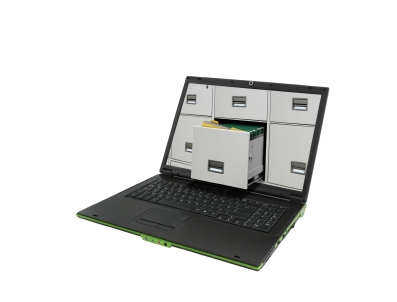Federal and state courts continue to evolve as technology evolves. The United States Tax Court is no exception. The United States Tax Court is now using an e-filing system for filing and serving documents rather than requiring petitioners to file and serve documents in paper form.
Filing. In general, United States Tax Court Rules of Practice and Procedure Rule 26 requires petitioner’s representative to electronically file (“e-file”) most documents. Mandatory e-filing does not apply to self-represented taxpayers; low-income taxpayer clinics; bar-sponsored pro bono programs; and, when the United States Tax Court grants a motion requesting an exception to the e-filing requirement. Tax Ct. R. 26. To e-file documents and receive service through e-filing, petitioner’s representative must register with the United States Tax Court.
The primary exception to the e-filing requirement is the initial filing, which usually includes the Petition, Request for Place of Trial, and Statement of Taxpayer Identification Number. All petitioners and representatives must file these documents in paper form.
The United States Tax Court used to require all petitioners and representatives to file one original document, along with four conformed copies of each document, when filing documents in paper form. Now, in most cases, petitioners and representatives must file the original document and one conformed copy when filing documents in paper form. Tax Ct. R. 23.
Service. The United States Tax Court, upon receiving the Petition, Request for Place of Trial, and Statement of Taxpayer Identification, serves these documents on the Commissioner of Internal Revenue’s (Commissioner’s) representative, usually the IRS Office of Chief Counsel. Petitioner does not need to separately serve these documents on the Commissioner’s representative.
For documents other than the initial filings, petitioners used to serve the Commissioner through United States mail or other approved method under the Tax Court Rules of Practice and Procedure. By letter dated August 17, 2010, the Commissioner authorized his representatives to accept service of United States Tax Court documents through e-filing. Now, when petitioner e-files a document, the United States Tax Court’s e-filing system serves the Commissioner’s representative electronically. Petitioner’s representative must still e-file a Certificate of Service stating that he or she served the Commissioner electronically. Tax Ct. R. 26. After e-filing the document, Petitioner’s representative should verify that the Commissioner’s representative received the document as service is not effective if petitioner’s representative learns that the document did not reach the intended party. Tax Ct. R. 21.
Petitioner must serve any court filed document on all parties. In cases with more than one party, e-filing the document does guarantee service on all parties unless all of the parties have consented to receive service through the e-filing system. Practitioners can find directions for serving documents through means other than e-filing in Tax Court Rules of Practice and Procedure Rule 21.
For further instruction regarding filing and serving documents in United States Tax Court proceedings, please review the United States Tax Court’s website at ustaxcourt.gov.

